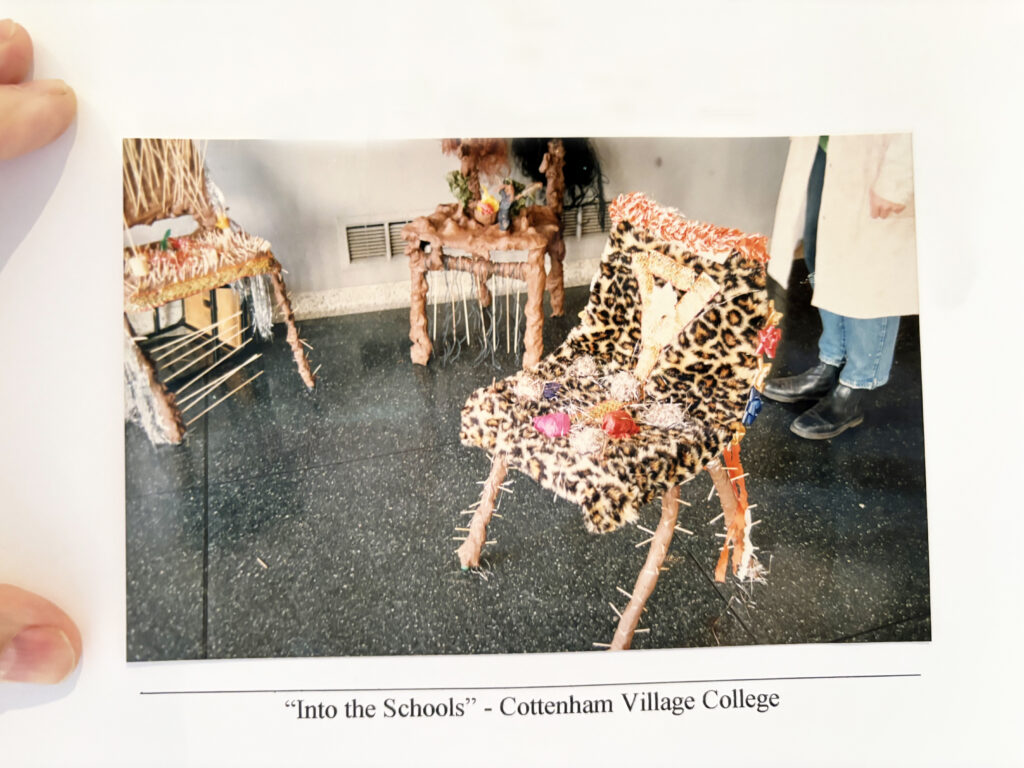Why We Need Artist Educators To Take Centre Stage
Many people think of AccessArt as being predominantly focussed upon Primary education, but in reality, AccessArt represents and serves a far wider community. In this post, Paula Briggs, CEO & Creative Director of AccessArt shares why AccessArt believes artist educators are vital to helping us redefine, as a society, the role we need art to play in making all our lives better.

Cambridge Sculpture Workshops, 1998
If you could cut AccessArt in half, you’d see at our core a belief in the importance of not just visual arts education, but more specifically, artist-led visual arts education. When Sheila Ceccarelli and I founded AccessArt in 1999, it was because we recognised the unique role artists might play in our world. By definition, “being an artist” means perhaps that you have taken the time to invest in your own creativity, and maybe you have been nurtured or invested in (intellectually) by others, through an art school environment and then onwards in life. This incredibly privileged position; to commit to spending time with yourself and the world to make art, can seem at odds with much of society, but this doesn’t lessen the reality that due to the intensity of an artists’ relationship with the world, they carry a unique vision, skill set and understanding. Our driving hope, back in 1999, was that if we could help artists recognise their powerful skills, even at the times when they were feeling only a sense of struggle with their own work, and inspire and enable them to share these skills with others, then we would all benefit. Artists might reconnect with their sense of self and purpose, and the audiences they worked with would benefit from a new understanding of their own potential to experience, explore and reshape the world through art.
Let’s reiterate: Artists are powerful. Through the way they show up in the world, and through the work they produce, artists can help us understand, express and imagine. They help us learn, they help us share, and they help us connect. They can help us find ways to say things we don’t have the words to say, help us face up to the things we can’t quite face up to, and they can give us hope.
But to many, being an artist doesn’t seem a very powerful thing to be at the moment. Past government policy has meant art has not been prioritised in education, and many economic lifelines have been cut for the networks which support artists’ development. And, either because of this, or perhaps due to this, we are in danger of losing our understanding of the purpose and relevance of art (and artists) in all our lives.
Whilst it could be argued that we have never, as a species, been more visually literate, the sheer amount of imagery we are surrounded by everyday perhaps clouds the fact that beyond and amongst this imagery we can discover “art” which might impact our life – improve our life – if only we stopped to engage. And whilst new avenues and audiences are opened up to artists through digital media, for most people “knowing” contact with an “artist” is rare.
As a positive and impactful organisation, we have always seen part of our role at AccessArt as one of raising the profile of artists as educators, so that they feel inspired and enabled to share their practice with all. As we approach our 26th year, I’d like to share AccessArt’s aims and vision to help artists better realise their understanding and potential to contribute to a societal redefinition of the ways in which art (and artists) might be relevant to, and can benefit, all our lives:
-
To Help Inspire More Artists To Understand Their Potential As Educators: Through the AccessArt Artist Educator Network, and through our website and events, work to help artists (both emerging and established) understand the ways in which connecting with new communities through education can benefit both the artist, their practice, and the learners.
-
To Help Enable More Artists Build Their Practice As Educators: Through the AccessArt Tiny Art School Movement, and other resources, to work to help create and distribute the sharing of excellent practice, both in terms of creative approach and economic models.
-
To Help New Audiences Experience The Power Of The Arts: Through developing the AccessArt offer to all audiences, including but not limited to: hospital & hospice education, prison education, and community and lifelong education, help facilitators provide a rich, creative and relevant art education for all, which helps individuals discover which aspects of the visual arts (exploring and understanding, making, sharing, discussing) resonate and are helpful personally.
-
Together, Work to Re-Define the Role That Art & Artists Might Play To Make All Our Lives Better.
